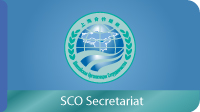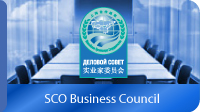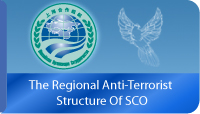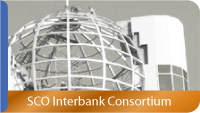|
|
 |
| Rashid Alimov: An equal dialogue helps find solutions to the most difficult problems |
| 06.06.2017 13:44 |
|
|
|
|
The Shanghai Cooperation Organisation, which has recently marked 15 years since its establishment, is rapidly becoming a major player on the international stage. Its global positions will be further strengthened by the accession of India and Pakistan at the upcoming SCO Summit in Astana, the capital of Kazakhstan. SCO Secretary-General Rashid Alimov talked with the TASS news agency about the importance of this event and the SCO's role in regional and global affairs.
Question: Mr Alimov, the SCO member states will convene for a regular summit in Astana, the capital of Kazakhstan, in a few days. Why is this summit so important that the media have already described it as a milestone in the Organisation's development?
Rashid Alimov: The leaders of the SCO member states will provide a consolidated view on international security in light of the recent developments in the region and the rest of the world, and will outline the current aspects of strengthening multifaceted cooperation within the SCO. A major issue on the summit agenda will be the accession of India and Pakistan as full members.
Question: It will be a milestone event indeed, but what exactly does that mean?
Rashid Alimov: Together with these two internationally respected states, the SCO will represent some 44 percent of the global population, and its sphere of responsibility will cover a vast territory from the Arctic in the north to the Indian Ocean in the south, and from China's Lianyungang in the east to Russia's Kaliningrad in the west. It is symbolic that the new stage in the SCO development begins 15 years after the adoption of its fundamental document, the SCO Charter, in St Petersburg. The SCO Charter incorporates the ideological, philosophical and practical guidelines for the development of multilateral cooperation within the SCO.
Question: How can you describe the SCO's internal structure? Do all member states have an equal vote in the Organisation? We can cite examples of organisations where some members have the decisive vote.
Rashid Alimov: In accordance with its Charter, the SCO is based on the principle of an equal multilateral partnership, which finds expression in the adoption of decisions exclusively through consensus. Multilateral partnership within the SCO can be described as cooperation based on the joint identification of areas of shared interests, the equal value of the opinions of each and all regardless of their political and economic weight, and respect for the partnership members' independence in their internal affairs and foreign policies. The SCO partnership is not based on the principle of toeing the line but on mutual understanding, not domination of one over the other, but equality and coordination.
The closer our coordination, the better our mutual understanding, and the more strictly we protect our equality, the more effective our multidirectional partnership becomes. Since its very inception, the SCO has avoided bloc-based and confrontational ideologically-laden approaches to current international and regional issues. We have strictly adhered to the fundamental principles of the SCO Charter, such as not directing our activities against other states and international organisations and actively developing contacts and cooperation with international and regional organisations, primarily the UN and its specialised agencies.
Question: The issues of security are gaining foremost importance in the world. How do you raise the issue in the SCO?
Rashid Alimov: The SCO was created for the sake of development and prosperity of the people living in the Organisation's countries. However, sustainable development is impossible without ensuring an appropriate level of security. In this context, joint action against terrorism, separatism and extremism in all their manifestations and an uncompromising fight against drug and arms trafficking, other types of transnational crime, as well as illegal migration have been and remain among priority tasks handled by SCO member states.
That said, I think it is important to emphasise that the SCO is not a military bloc. However, the uncompromising fight against the terrorist threat dictates the need for developing and strengthening mechanisms aimed to pursue radical eradication of terrorist activity. Regular joint military and counter-terrorist exercises of the member states, such as the Peaceful Mission, contribute greatly to this effort. Since 2007, these drills have factored into joint improvement of practical skills and strategies for military operations against terrorist groups in various conditions using a variety of arms and equipment. The Regional Anti-Terrorist Structure (RATS) is another smoothly and efficiently operating body.
Question: How serious does the SCO take the drug trafficking threat? It is not a secret that almost all members are directly affected by this growing evil.
Rashid Alimov: Comprehensive action against the drug threat is also among the SCO priorities. Illegal drug production and trafficking continue to remain one of the major security threats that undermine international peace and stability. The SCO member states' dedicated work against the drug evil in the past five years has contributed to the removal of some 69 tonnes of fatal heroine from the turnover, which amounts to 14 percent of the global traffic. Consolidated efforts of competent authorities have also resulted in the removal of over 75 tonnes of precursors required for the production of drug poison. Collaboration of the SCO states' competent authorities is yielding significant results. However, we understand that it is only possible to efficiently stand against the drug threat when the entire world community further consolidates its efforts. Therefore, we put special emphasis on continuing and increasing close cooperation between the SCO and the United Nations Office on Drugs and Crime.
Question: Could it be that these topical problems perhaps overshadow the constructive aspects of the SCO's activity, primarily the business cooperation within the Organisation?
Rashid Alimov: One of the Organisation's driving forces is cooperation in trade and the economy. Joint development of infrastructure and communications, as well as implementing multilateral projects to improve wellbeing and quality of life are the constructive tasks that the member states work on together.
At regular meetings of industry-specific ministries and agencies, the SCO states work through the practical issues of an economic nature. Cooperation institutions for representatives of businesses are quite successful. This encourages gradual growth of mutually accumulated investment of the SCO member states that exceeded $40 billion in 2016.
Question: Can you give specific examples?
Rashid Alimov: On 20 January this year, the SCO member states' Agreement on Facilitation of International Road Transport came into effect. It provided a legal basis for parity terms for road transport operators and laid a foundation for international road transport across the entire space from Eastern Europe to the eastern shores of Russia and China. Implementation of the agreement will undoubtedly give an extra impetus to trade, construction of new road sections and renovation of existing roads included in the international route network. The agreement is open for non-members to join, which has already been noted by several SCO neighbours.
Question: As usual, I want to ask about cultural cooperation within the SCO. What is its role, considering that each SCO country has a rich culture and traditions that differ from each other? Some culture experts and politicians see the root of the problems facing nations, such as terrorism, the growing development inequality and the migration crisis, in the so-called civilisational divide.
Rashid Alimov: I see cultural cooperation as the basis for strengthening mutual trust, friendship and neighbourliness among the SCO member states. The dialogue of cultures and civilisations within the SCO is promoting better knowledge of each other, mutual enrichment and, ultimately, better mutual understanding among the member states. This is the main civilisational mission of the SCO, which we are implementing through a comprehensive approach aimed at creating a fair and democratic architecture of international relations. Actually, our unique multi-civilisational organisation has created conditions for preventing civilisational conflicts in the zone of its responsibility.
Question: Are all of the issues you have mentioned on the SCO Summit agenda?
Rashid Alimov: Over the 15 years of its existence, the SCO has developed one of the world's largest systems of regional interaction focused on political stability, stronger security and broader trade and economic cooperation in the name of mutual development and prosperity of the SCO nations. I would say that the June summit in Astana will open a new epoch in the history of the SCO's development. It will also confirm our commitment to peace, joint development, equality and cooperation aimed at promoting security, stability and sustainable development within the SCO.
Question: In your words, the SCO looks like an ideal organisation. Are there really no internal problems and unsettled issues? Is everyone in agreement with each other? After all, there are bound to be differences and disputes.
Rashid Alimov: The SCO's advantage is that an equal dialogue allows its member states to look for and find the best solutions to the most difficult problems. The sum total of the member states' sovereign rights, national interests and common goals is the Organisation's key strength. If this combination takes time to develop, it does not mean that we must stop working to find the common denominator.
The effectiveness of the SCO's model should be considered, not in terms of the process but of the final result. This model also encourages joint work, because it gives us considerable flexibility, as it proceeds from the SCO Charter and the implementation of Charter principles at all levels of the SCO mechanisms. The SCO's history is evidence that the path to success lies in mutual understanding, equality and coordination. The closer we coordinate our actions, the deeper our mutual understanding becomes, the more we respect our equality and the more effective our partnership within the SCO becomes.
Question: And yet, regional stability is still the cornerstone issue?
Rashid Alimov: Stability in the zone of the SCO's responsibility allows us to focus on regional development projects. It is notable that Russia and China view the SCO as the main Eurasian platform for implementing their large economic initiatives, including the Silk Road Economic Belt and the Greater Eurasian Partnership. Another crucial element is that the SCO will become a venue for a regular dialogue among four nuclear powers, or half of the official global nuclear club.
And one more thing: it is a fact that there are over a dozen international organisations in Asia, but only two of them are truly universal: the SCO and ASEAN. These two organisations have a vast potential for developing cooperation, primarily because their legislation covers all aspects of multifaceted cooperation. The transcontinental nature of the SCO allows it to act as the link between the Asian-Pacific and Atlantic regions and between countries in South Asia and the Middle East.
|
|
* Реестр иностранных средств массовой информации, выполняющих функции иностранного агента:
Голос Америки, Idel.Реалии, Кавказ.Реалии, Крым.Реалии, Телеканал Настоящее Время, Azatliq Radiosi, PCE/PC, Сибирь.Реалии, Фактограф, Север.Реалии, Радио Свобода, MEDIUM-ORIENT, Пономарев Лев Александрович, Савицкая Людмила Алексеевна, Маркелов Сергей Евгеньевич, Камалягин Денис Николаевич, Апахончич Дарья Александровна, Medusa Project, Первое антикоррупционное СМИ, VTimes.io, Баданин Роман Сергеевич, Гликин Максим Александрович, Маняхин Петр Борисович, Ярош Юлия Петровна, Чуракова Ольга Владимировна, Железнова Мария Михайловна, Лукьянова Юлия Сергеевна, Маетная Елизавета Витальевна, The Insider SIA, Рубин Михаил Аркадьевич, Гройсман Софья Романовна, Рождественский Илья Дмитриевич, Апухтина Юлия Владимировна, Постернак Алексей Евгеньевич, Общество с ограниченной ответственностью Телеканал Дождь, Петров Степан Юрьевич, Istories fonds, Шмагун Олеся Валентиновна, Мароховская Алеся Алексеевна, Долинина Ирина Николаевна, Шлейнов Роман Юрьевич, Анин Роман Александрович, Великовский Дмитрий Александрович, Альтаир 2021, Ромашки монолит, Главный редактор 2021, Вега 2021
* Сведения реестра НКО, выполняющих функции иностранного агента:
Фонд защиты прав граждан Штаб, Институт права и публичной политики, Лаборатория социальных наук, Фонд по борьбе с коррупцией, Альянс врачей, НАСИЛИЮ.НЕТ, Мы против СПИДа, Фонд защиты прав граждан, СВЕЧА, Гуманитарное действие, Открытый Петербург, Феникс ПЛЮС, Лига Избирателей, Правовая инициатива, Гражданская инициатива против экологической преступности, Фонд борьбы с коррупцией, Гражданский Союз, Российский Красный Крест, Центр Хасдей Ерушалаим, Центр поддержки и содействия развитию средств массовой информации, Горячая Линия, В защиту прав заключенных, Институт глобализации и социальных движений, Центр социально-информационных инициатив Действие, ВМЕСТЕ, Благотворительный фонд охраны здоровья и защиты прав граждан, Благотворительный фонд помощи осужденным и их семьям, Фонд Тольятти, Новое время, Серебряная тайга, Так-Так-Так, центр Сова, центр Анна, Проект Апрель, Самарская губерния, Эра здоровья, правозащитное общество Мемориал, Аналитический Центр Юрия Левады, Издательство Парк Гагарина, Фонд имени Андрея Рылькова, Сфера, Центр защиты СИБАЛЬТ, Уральская правозащитная группа, Женщины Евразии, Рязанский Мемориал, Екатеринбургское общество МЕМОРИАЛ, Институт прав человека, Фонд защиты гласности, Российский исследовательский центр по правам человека, Дальневосточный центр развития гражданских инициатив и социального партнерства, Пермский региональный правозащитный центр, Гражданское действие, Центр независимых социологических исследований, Сутяжник, АКАДЕМИЯ ПО ПРАВАМ ЧЕЛОВЕКА, Частное учреждение Совета Министров северных стран, Центр развития некоммерческих организаций, Гражданское содействие, Центр Трансперенси Интернешнл-Р, Центр Защиты Прав Средств Массовой Информации, Институт развития прессы - Сибирь, Фонд поддержки свободы прессы, Гражданский контроль, Человек и Закон, Общественная комиссия по сохранению наследия академика Сахарова, Информационное агентство МЕМО. РУ, Институт региональной прессы, Институт Развития Свободы Информации, Экозащита!-Женсовет, Общественный вердикт, Евразийская антимонопольная ассоциация, Чанышева Лилия Айратовна, Сидорович Ольга Борисовна, Таранова Юлия Николаевна, Туровский Александр Алексеевич, Васильева Анастасия Евгеньевна, Ривина Анна Валерьевна, Бурдина Юлия Владимировна, Бойко Анатолий Николаевич, Гусева Ольга Андреевна, Дугин Сергей Георгиевич, Пивоваров Андрей Сергеевич, Писемский Евгений Александрович, Аверин Виталий Евгеньевич, Барахоев Магомед Бекханович, Шевченко Дмитрий Александрович, Жданов Иван Юрьевич, Рубанов Роман Викторович, Шарипков Олег Викторович, Мальсагов Муса Асланович, Мошель Ирина Ароновна, Шведов Григорий Сергеевич, Пономарев Лев Александрович, Каргалицкий Борис Юльевич, Созаев Валерий Валерьевич, Исакова Ирина Александровна, Исламов Тимур Рифгатович, Романова Ольга Евгеньевна, Щаров Сергей Алексадрович, Цирульников Борис Альбертович, Халидова Марина Владимировна, Людевиг Марина Зариевна, Федотова Галина Анатольевна, Паутов Юрий Анатольевич, Верховский Александр Маркович, Пислакова-Паркер Марина Петровна, Кочеткова Татьяна Владимировна, Чуркина Наталья Валерьевна, Акимова Татьяна Николаевна, Золотарева Екатерина Александровна, Рачинский Ян Збигневич, Жемкова Елена Борисовна, Гудков Лев Дмитриевич, Илларионова Юлия Юрьевна, Саранг Анна Васильевна, Захарова Светлана Сергеевна, Аверин Владимир Анатольевич, Щур Татьяна Михайловна, Щур Николай Алексеевич, Блинушов Андрей Юрьевич, Мосин Алексей Геннадьевич, Гефтер Валентин Михайлович, Симонов Алексей Кириллович, Флиге Ирина Анатольевна, Мельникова Валентина Дмитриевна, Вититинова Елена Владимировна, Баженова Светлана Куприяновна, Исаев Сергей Владимирович, Максимов Сергей Владимирович, Беляев Сергей Иванович, Голубева Елена Николаевна, Ганнушкина Светлана Алексеевна, Закс Елена Владимировна, Буртина Елена Юрьевна, Гендель Людмила Залмановна, Кокорина Екатерина Алексеевна, Шуманов Илья Вячеславович, Арапова Галина Юрьевна, Пастухова Анна Яковлевна, Прохоров Вадим Юрьевич, Шахова Елена Владимировна, Подузов Сергей Васильевич, Протасова Ирина Вячеславовна, Литинский Леонид Борисович, Лукашевский Сергей Маркович, Бахмин Вячеслав Иванович, Шабад Анатолий Ефимович, Сухих Дарья Николаевна, Орлов Олег Петрович, Добровольская Анна Дмитриевна, Королева Александра Евгеньевна, Смирнов Владимир Александрович, Вицин Сергей Ефимович, Золотухин Борис Андреевич, Левинсон Лев Семенович, Локшина Татьяна Иосифовна, Орлов Олег Петрович, Полякова Мара Федоровна, Резник Генри Маркович, Захаров Герман Константинович
* Единый федеральный список организаций, в том числе иностранных и международных организаций, признанных в соответствии с законодательством Российской Федерации террористическими:
Высший военный Маджлисуль Шура, Конгресс народов Ичкерии и Дагестана, Аль-Каида, Асбат аль-Ансар, Священная война, Исламская группа, Братья-мусульмане, Партия исламского освобождения, Лашкар-И-Тайба, Исламская группа, Движение Талибан, Исламская партия Туркестана, Общество социальных реформ, Общество возрождения исламского наследия, Дом двух святых, Джунд аш-Шам, Исламский джихад, Аль-Каида, Имарат Кавказ, АБТО, Правый сектор, Исламское государство, Джабха аль-Нусра ли-Ахль аш-Шам, Народное ополчение имени К. Минина и Д. Пожарского, Аджр от Аллаха Субхану уа Тагьаля SHAM, АУМ Синрике, Муджахеды джамаата Ат-Тавхида Валь-Джихад, Чистопольский Джамаат, Рохнамо ба суи давлати исломи, Террористическое сообщество Сеть, Катиба Таухид валь-Джихад, Хайят Тахрир аш-Шам, Ахлю Сунна Валь Джамаа
* Перечень общественных объединений и религиозных организаций в отношении которых судом принято вступившее в законную силу решение о ликвидации или запрете деятельности:
Национал-большевистская партия, ВЕК РА, Рада земли Кубанской Духовно Родовой Державы Русь, Асгардская Славянская Община Асгардской Веси Беловодья, Славянская Община Капища Веды Перуна, Мужская Духовная Семинария Староверов-Инглингов, Нурджулар, К Богодержавию, Таблиги Джамаат, Русское национальное единство, Национал-социалистическое общество, Джамаат мувахидов, Объединенный Вилайат Кабарды, Балкарии и Карачая, Союз славян, Ат-Такфир Валь-Хиджра, Пит Буль, Национал-социалистическая рабочая партия России, Славянский союз, Формат-18, Благородный Орден Дьявола, Армия воли народа, Национальная Социалистическая Инициатива города Череповца, Духовно-Родовая Держава Русь, Русское национальное единство, Древнерусской Инглистической церкви Православных Староверов-Инглингов, Русский общенациональный союз, Движение против нелегальной иммиграции, Кровь и Честь, О свободе совести и о религиозных объединениях, Омская организация Русское национальное единство, Северное Братство, Клуб Болельщиков Футбольного Клуба Динамо, Файзрахманисты, Мусульманская религиозная организация п. Боровский, Община Коренного Русского народа Щелковского района, Правый сектор, Украинская национальная ассамблея, Украинская повстанческая армия, Тризуб им. Степана Бандеры, Украинская организация «Братство», Свидетели Иеговы, О противодействии экстремистской деятельности, РЕВТАТПОД, Артподготовка, Штольц, В честь иконы Божией Матери Державная, Сектор 16, Независимость, Организация футбольных болельщиков «Фирма», Молодежная правозащитная группа МПГ, Курсом Правды и Единения, Каракольская инициативная группа, Автоград Крю, Союз Славянских Сил Руси, Алля-Аят, Благотворительный пансионат Ак Умут, Русская республика Русь, Арестантское уголовное единство, Башкорт, Нация и свобода, W.H.С., Фалунь Дафа, Иртыш Ultras, Русский Патриотический клуб-Новокузнецк/РПК, Сибирский державный союз, Фонд борьбы с коррупцией, Фонд защиты прав граждан, Штабы Навального
|






















Leave a comment